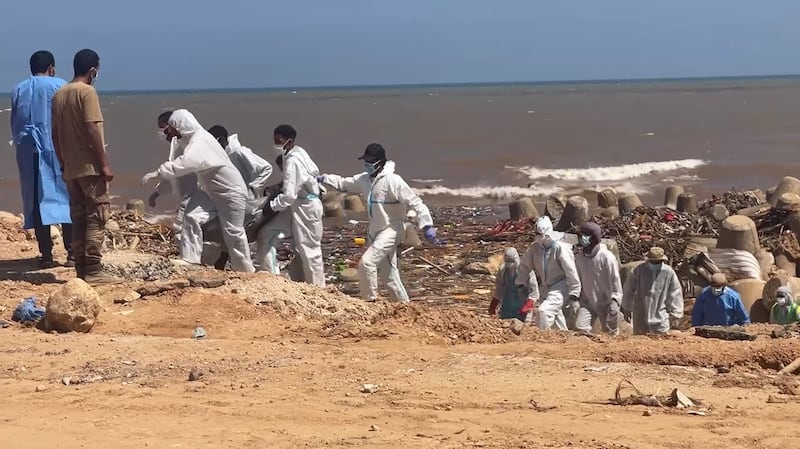The official death toll from the flash flood that hit Libya’s eastern city of Derna in September stands at 4,540, with at least 14 people facing charges in connection with the disaster, according to a report released on Friday.
The Libyan Public Prosecution Authority said it found that “negligence” led to the collapse of the Bilad and Sidi Bou Mansour dams above the coastal city following heavy rains brought by Hurricane Daniel.
Several cities, including Benghazi, Al Bayda, Al Marj and Sousse, were affected by heavy flooding when the Mediterranean storm hit eastern Libya on September 10, but Derna suffered the worst as a torrent of water from the collapsed dams tore through its centre.
Many people were buried under mud or washed out to sea.
“The total number of registered deaths recorded in the flood disaster in Derna reached 4,540 people, including 3,964 citizens and 576 foreigners,” the Public Prosecution Authority report said.
“The lack of an alarm system in the two dams, the neglect of cleaning the upper hatches, and the neglect of regular maintenance contributed to the disaster.”
It said the drainage system in the valley was “not working as designed due to the accumulation of dirt for a year, without any maintenance”.
The investigation also found that the dams had developed cracks and major leaks before their collapse.
The prosecution authority said authorities have so far detained 14 people including the mayor of Derna, Abdel Moneim Al Ghaithi, as well officials in the city’s water resources and dams authority who were not named.
It said an Interpol Red Notice had been issued for two accused who had fled the country, without naming them.
Many point to the years of conflict that has led to widespread neglect of infrastructure.
“Dams in Libya and especially in the east of the country, haven't received maintenance in years and management bodies haven't provided adequate financial support and means to support the dams, which has led to adverse effects,” Malak Altaeb, a fellow at the Centre for Climate and Security, who studied at the University of Tripoli, told The National.







